I am a Senior Principal Research Scientist at the HCI & Visualization Group at Autodesk Research in Toronto, Canada. My research interests lie at the intersection of Human–Computer Interaction, Ubiquitous Computing and Information Visualization. At Autodesk, I am focusing particularly on research in HCI and Software Learning.
I'm broadly interested in addressing interaction challenges with non-traditional interactive technologies, and particularly in designing technology that puts people back in control of their digital environments. My research has included topics such as making ubiquitous computing and context-aware technologies intelligible or understandable (and how that relates to explainable AI); the design principle feedforward; addressing interaction challenges and dark patterns in proxemic interactions; situated visualization; and facilitating the design and development of multi-device and cross-device user interfaces. For more details about my work, have a look at my list of publications or my Google Scholar profile.
My research has received a number of awards. My PhD dissertation was awarded with the 2015 FWO - IBM Innovation Award; this award is given annually to the best Belgian PhD dissertation in computer science. My papers have received awards at premier Human–Computer Interaction conferences, including a Best Paper Award at DIS 2014 and a Best Paper Honorable Mention Award at CHI 2013.
Before joining Autodesk Research, I was an Assistant Professor at the Department of Computer Science at Aarhus University (2017–2020). Prior to that, I was a Postdoctoral Fellow in the Innovations in Visualization Laboratory at the Interactions Lab at the University of Calgary (2016–2017), where I worked with Sheelagh Carpendale. Before that, I did a postdoc with Russell Beale at the HCI Centre of the University of Birmingham (2015), working on mobile and context-aware technology and behaviour change intervention technologies. I received my PhD in Computer Science in December 2014 from Hasselt University, working with Kris Luyten and Karin Coninx in the EDM HCI group.
News
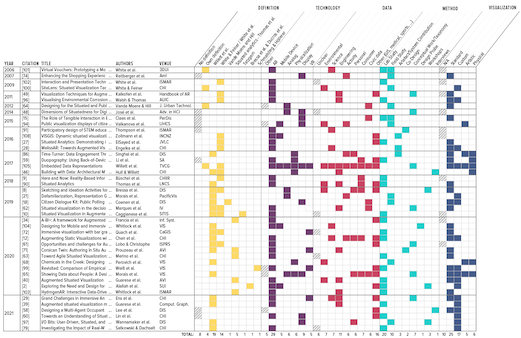
|
Survey on Situated Visualization Accepted at VIS 2021April 2021Our paper "What's the Situation with Situated Visualization? A Survey and Perspectives on Situatedness" has been accepted to IEEE VIS 2021. In this paper, we review the literature on situated visualization. We found that the majority of work in situated visualization to date is technology-centric and foregrounds a spatial understanding of situatedness. We contribute five perspectives on situatedness (space, time, place, activity, and community) drawn from prior developments in HCI that together expand on the prevalent notion of situatedness in the corpus, which we illustrate through six case studies. |
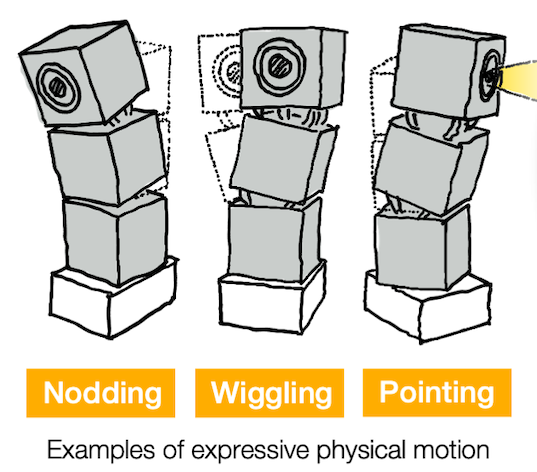
|
Paper on QUBI Accepted at DIS 2021April 2021Our paper "Machine Body Language: Expressing a Smart Speaker’s Activity with Intelligible Physical Motion" has been accepted to DIS 2021. In this paper, we explore whether we can imbue smart technologies with machine mannerisms. We present QUBI, a smart speaker with expressive physical motions to complement its conversational interaction and make its activities intelligible. |

|
Paper Accepted at OZCHI 2020October 2020Our paper "Intelligibility Issues Faced by Smart Speaker Enthusiasts in Understanding What Their Devices Do and Why" has been accepted to OzCHI 2020. From an online survey and interviews with smart speaker enthusiasts, we identified seven breakdown recovery strategies and found that enthusiasts particularly struggled to understand breakdowns in their IoT infrastructure. From our findings, we suggest three future research directions: infrastructural breakdowns as learning opportunities; leveraging non-verbal communication; and considering the intelligibility needs of passive smart speaker users. |

|
Principal Research Scientist at Autodesk Research in TorontoAugust 2020I'm very excited to announce that I have joined Autodesk Research in Toronto as a Principal Research Scientist. I will be a member of the HCI & Visualization Group and I am very much looking forward to working with my new colleagues! |
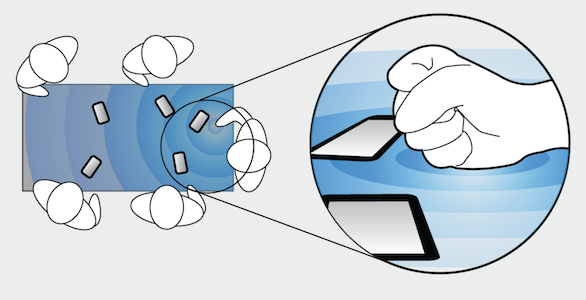
|
Paper on Proxemics Beyond Proximity Accepted to CHI 2020January 2020Our paper "Proxemics Beyond Proximity: Designing for Flexible Social Interaction Through Cross-Device Interaction" has been accepted to ACM CHI 2020. We propose to consider proxemics beyond proximity, switching focus from detecting proximity to enabling interpersonal relations by designing for a flexible interplay between people, interactive devices and features in the environment. |
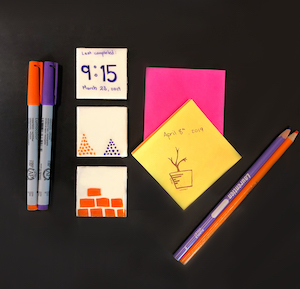
|
Paper on Situated Visualization Design Accepted to DIS 2019March 2019Our paper "Sketching and Ideation Activities for Situated Visualization Design" has been accepted to ACM DIS 2019. We report on findings from seven design workshops that used ideation and sketching activities to prototype new situated visualizations. From our observations, we identify challenges and opportunities for sketching and ideating situated visualizations. |
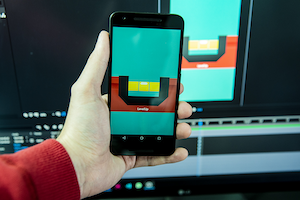
|
Paper on Astral Accepted to DIS 2019March 2019Our paper "Astral: Prototyping Mobile and Smart Object Interactive Behaviours Using Familiar Applications" has been accepted to ACM DIS 2019. Astral is a prototyping tool that uses display mirroring, sensor streaming and input remapping to facilate prototyping of dynamic interactive behaviours on mobile devices and smart objects through the use of familiar desktop applications. |

|
Article Published in ACM InteractionsJanuary 2019Our article "Beyond Generalization: Research for the Very Particular" has been published in the recent issue of ACM interactions. The article summarizes discussions and debates at the Participatory IT center at Aarhus University on research that does not aim for universal or generic solutions, but rather focuses on addressing the particular challenges of particular people in particular situations or activities. |
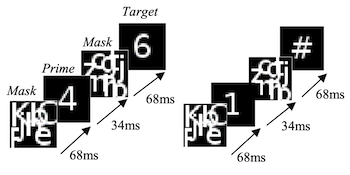
|
Paper Accepted to MobileHCI 2018April 2018Our paper "Subliminal Semantic Number Processing on Smartphones" has been accepted to MobileHCI 2018. This paper continues on our earlier MobileHCI '17 paper to investigate whether people can extract meaning from subliminal presentation of information in mobile contexts. We found that overall, the impact is effectively negligible for practical applications. |
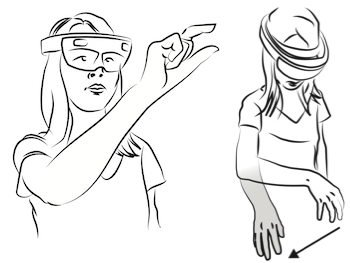
|
Paper Accepted to DIS 2018March 2018Our paper "Manipulating Holograms: Implications for AR Gesture Design" has been accepted to DIS 2018. The paper presents a gesture elicitation study with the Microsoft HoloLens in which we found that the scale of AR affects the types of free-hand gestures people expect to use when interacting with 3D holograms. |

|
Article Accepted for ACM TOCHI JournalFebruary 2018Our paper "Digital Behaviour Change Interventions to Break and Form Habits" has been accepted to the ACM TOCHI journal, and will be presented next year at CHI 2019 in Glasgow. The paper provides an critical review of theories and models around effective habitual behavior change interventions using technology — a 68-page heroic effort led by Charlie Pinder. |
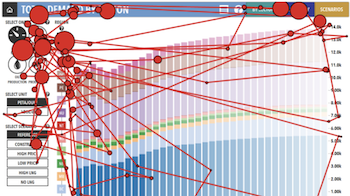
|
Article Accepted for IEEE TVCG JournalJanuary 2018Our paper "Exploration Strategies for Discovery of Interactivity in Visualizations" has been accepted to the IEEE TVCG journal, and will be presented later this year at VIS 2018 in Berlin. The paper presents a study of web-based energy data visualizations that provides insights into exploration strategies people use to discover the functionality of web-based visualizations. |
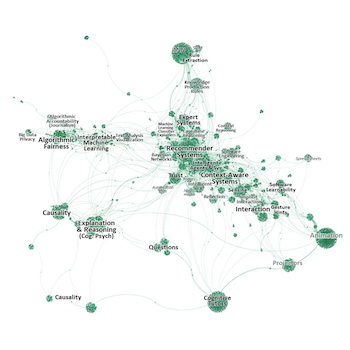
|
Paper Accepted to CHI 2018December 2017Our survey paper "Trends and Trajectories for Explainable, Accountable and Intelligible Systems: An HCI Research Agenda" in which we performed a literature analysis of 289 core papers on explanations and explainable systems as well as more than 12,000 citing papers has been accepted to CHI 2018. The paper provides insights into relations between research areas on explainable AI, intelligibility, interpretable machine learning, algorithmic accountability, software learnability, and intelligent user interfaces. |
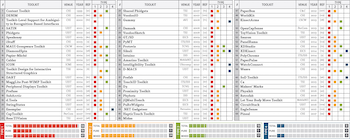
|
Paper Accepted to CHI 2018December 2017Our survey paper on "Evaluation Strategies for HCI Toolkit Research" in which we survey evaluation strategies in 68 published toolkit papers has been accepted to CHI 2018. We hope this can be a starting point for students starting out in technical HCI work and helps address the difficulty of evaluating HCI toolkit research by distilling common evaluation strategies. |

|
Article Published in ACM InteractionsAugust 2017Our article "Opportunities and Challenges for Cross-Device Interactions in the Wild" that summarizes insights from our three Cross-Surface workshops has been published in the recent issue of ACM interactions. |

|
Assistant Professor at Aarhus UniversityAugust 2017I'm very excited to announce that I have joined Aarhus University as an Assistant Professor. I will be a member of the Ubiquitous Computing and Interaction group in the Department of Computer Science. I will also be closely working with the Computer-Mediated Activity group, and look forward to being part of the larger HCI research community at Aarhus University. |
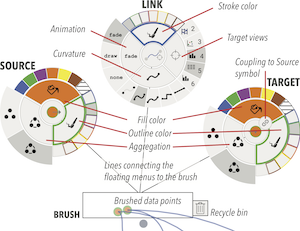
|
Paper accepted to InfoVis 2017July 2017Our paper "MyBrush: Brushing and Linking with Personal Agency" has been accepted to InfoVis 2017. We extend the popular brushing and linking technique by incorporating personal agency in the interaction and show how people leveraged personal agency in different ways, configuring source, link, and target to fit their needs. |
 |
Paper accepted to MobileHCI 2017April 2017Our paper "Exploring the Feasibility of Subliminal Priming on Smartphones" has been accepted to MobileHCI 2017. We explore the feasibility of subliminal priming on smartphones with three studies. We found that although subliminal priming is technically possible on smartphones, there is limited evidence of impact, with inconsistent effects across stimuli types. |
 |
Paper accepted to PervasiveHealth 2017April 2017Our paper "Differences That Matter: In-Clinic Communication Challenges" has been accepted to PervasiveHealth 2017. Through a literature survey and interviews, we provide an integrated view of patients’ and clinicians’ perspectives on in-clinic communication challenges. |

|
Innovation Award for Energy Futures VisualizationsDecember 2016The National Energy Board of Canada (NEB) was awarded a Regulatory Excellence Award in the category "Contribution to Innovation in the Regulatory Field" for the Energy Futures visualizations. I was part of the team at the University of Calgary that designed these interactive visualizations to make the NEB's Energy Futures data accessible to the general public. The award was granted to the NEB by the Community of Federal Regulators at the Regulatory Excellence Awards ceremony in Ottawa. |
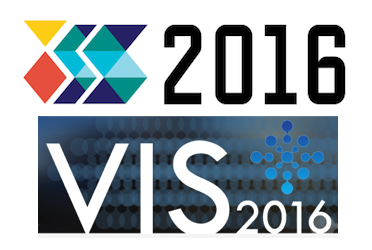
|
Workshop at ACM ISS 2016 and Tutorial at IEEE VIS 2016June 2016The third instalment of our Cross-Surface workshop series has been accepted to ACM ISS 2016. This year we're focusing on Spatial and Proxemic Interaction. Additionally, our tutorial "Considering Qualitative Evaluation" has been accepted to IEEE VIS 2016. We're looking forward to welcome you at both events! |
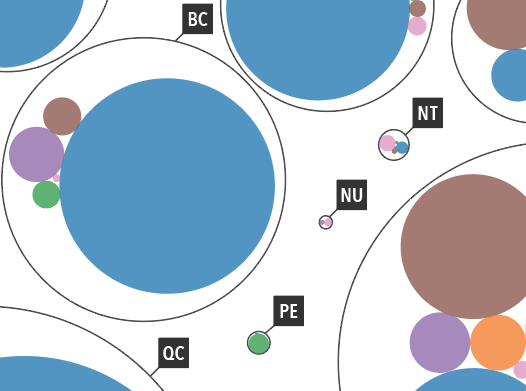
|
Visualizations for Canada's National Energy Board ReleasedMay 2016I'm excited to announce that the visualizations that we created for Canada's National Energy Board (NEB) about their Energy Futures data are currently live. The visualizations allow you to explore energy consumption and production by region, source, and sector over time in different possible scenarios. |
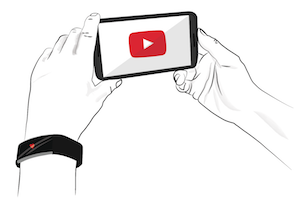
|
Paper Accepted to DIS 2016March 2016Our full paper "Heartefacts: Augmenting Mobile Video Sharing Using Wrist-Worn Heart Rate Sensors" has been accepted to DIS 2016. This was joint work with Lindsay MacDonald, Johannes Schöning, Russell Beale, and Sheelagh Carpendale. |

|
Organizational Roles at DIS 2016 and ACM ISS 2016February 2016I will help with the organization of a few upcoming conferences: I am Posters Co-Chair and a member of the Program Committee for ACM ISS 2016, and an Associate Chair in the Technological Innovation Subcommittee for DIS 2016. |

|
Paper Accepted to CHI 2016January 2016Our paper "My Phone and Me: Understanding People’s Receptivity to Mobile Notifications" has been accepted to CHI 2016. We present a study of mobile notifications that provides insights into various aspects of people's interactions with mobile notifications, including why and when people respond to them and their perceived disruption. |

|
Postdoctoral Fellow at InnoVis / iLab / University of CalgaryJanuary 2016I am very happy to announce that I joined the University of Calgary in Canada as a Postdoctoral Fellow. I will be working with Sheelagh Carpendale in the InnoVis group at the Interactions Lab. I am looking forward to collaborating on exciting projects with my new colleagues in Calgary! |
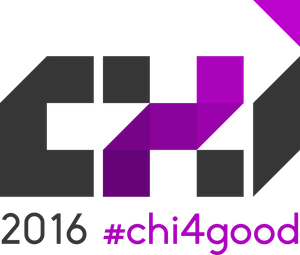
|
Cross-Surface 2016 Workshop Accepted to CHI 2016December 2015After a successful (and fun!) Cross-Surface workshop at ACM ITS 2015, we are happy to announce that a follow-up workshop has been accepted to CHI 2016 in San Jose. Cross-Surface 2016 is the second workshop on interacting with multi-device ecologies "In the Wild", in which we specifically focus on the bring-your-own-device (BYOD) practice. Please have a look at the Call for Papers, and follow us on Twitter for updates. Submissions are due on |

|
FWO-IBM Innovation Award for PhD DissertationOctober 2015I am excited to announce that I won the 2015 FWO–IBM Innovation Award for my PhD dissertation. This prize is awarded annually by Research Foundation Flanders (FWO) and IBM in recognition of an outstanding PhD thesis that presents an original contribution to informatics or its applications. It is Belgium's oldest and most prestigious scientific award for research in computer science and its applications. |

|
Book Chapter in Peripheral Interaction BookAugust 2015Our book chapter "Fluent Transitions Between Focused and Peripheral Interaction in Proxemic Interactions", co-authored with Steven Houben and Nicolai Marquardt, will be published in the Springer HCI Series book on Peripheral Interaction (to appear in Spring 2016). |

|
Poster and Workshop contributions at British HCI, MobileHCI, Ubicomp and ACM ITSAugust 2015Charlie Pinder presented her work on mobile behaviour change interventions at British HCI 2015 (workshop paper) and MobileHCI 2015 (poster, workshop paper). Abhinav Mehrotra will present our workshop paper on interruptibility-aware experience sampling at Ubicomp 2015, and I will present our work on multi-device notifications at our ACM ITS 2015 Cross-Surface workshop. |

|
Cross-Surface Workshop on Cross-Device Interaction at ITS 2015June 2015I am co-organising a workshop at ACM ITS 2015 on cross-device interaction, together with Steven Houben, Clemens Klokmose, Nicolai Marquardt, Johannes Schöning and Harald Reiterer. In the Cross-Surface 2015 workshop, we will review and discuss opportunities, technical challenges and problems with cross-device interactions in real-world interactive multi-surface and multi-device ecologies. Position papers will be due by early September, check out the workshop flyer! |

|
Paper Accepted to INTERACT 2015March 2015Our paper "Proxemic Flow: Dynamic Peripheral Floor Visualizations for Revealing and Mediating Large Surface Interactions" has been accepted to the INTERACT 2015 conference. |
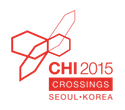
|
Works-in-Progress and Workshop Contributions at CHI 2015February 2015In April, I will be attending the CHI 2015 conference to present a works-in-progress paper and participate in the Mobile Collocated Interactions and Smart for Life workshops. |

|
Co-Lecturer for Mobile & Ubiquitous Computing CourseFebruary 2015This semester, I'm involved in teaching the Mobile & Ubiquitous Computing course. I will be teaching half of the module about Programming Mobile Applications for Android, while my co-lecturer Mirco Musolesi will focus on networking and sensing in mobile & ubiquitous computing systems. |

|
Postdoc at University of BirminghamJanuary 2015On 5th January, I start my new postdoc position as a Research Fellow in Human–Computer Interaction at the University of Birmingham in the UK, working with Russell Beale. I look forward to working on interesting projects with my new colleagues in Birmingham! |

|
PhD DefenceDecember 2014On 11th December, I successfully defended my PhD dissertation entitled "Designing for Intelligibility and Control in Ubiquitous Computing Environments". Thanks to my advisors Karin Coninx and Kris Luyten, and everyone at the EDM HCI group! |

|
Poster Accepted to ITS 2014September 2014Our poster "Overcoming Interaction Barriers in Large Public Displays Using Personal Devices" has been accepted to the ITS 2014 conference. |

|
Article in IEEE ComputerAugust 2014Our article "The Dark Patterns of Proxemic Sensing" will appear in Volume 47, Number 8 of IEEE Computer. |

|
Paper accepted to Ubicomp 2014June 2014Our paper "From Today's Augmented Houses to Tomorrow's Smart Homes: New Directions for Home Automation Research" has been accepted to the Ubicomp 2014 conference. |

|
Best Paper Award for Dark Patterns Paper at DIS 2014May 2014Our paper "Dark Patterns in Proxemic Interactions: A Critical Perspective" has received the "Best Paper Award" (top 1% of submissions) at the DIS 2014 conference. |

|
Position paper accepted to the DIS 2014 workshop on Social NUIApril 2014Our position paper "Addressing Challenges in Crowded Proxemics-Aware Installations" has been accepted to the DIS 2014 Workshop on SocialNUI: Social Perspectives in Natural User Interfaces. Looking forward to an exciting workshop! |
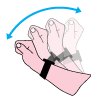
|
Paper accepted to DIS 2014 Provocations and Works-in-ProgressApril 2014Students who participated in our "Current Trends in HCI" course (Dutch: "Actuele trends in HCI"), worked on a research project as part of the course and were guided in writing up the results as a paper submission. Congratulations to Yannick Bernaerts, Matthias Druwé and Sebastiaan Steensels who got their paper on "The Office Smartwatch" accepted to the DIS 2014 Provocations and Works-in-Progress track! |
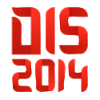
|
Two papers accepted to DIS 2014March 2014Our note "The Design of Slow-Motion Feedback" and full paper "Dark Patterns in Proxemic Interactions: A Critical Perspective" have been accepted to the DIS 2014 conference. |
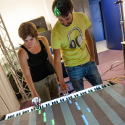
|
Demo accepted to CHI 2014 InteractivityJanuary 2014Our installation "Game of Tones" has been accepted to the CHI 2014 Interactivity track. It is a fun way to learn to play piano songs, which was developed by Linsey Raymaekers for her Bachelor's thesis. An earlier iteration (called "The Augmented Piano") was among the winners of the NUMA 2013 awards, and received some press coverage (in Dutch). |

|
Dagstuhl seminar on Proxemics in Human-Computer InteractionNovember 2013I participated in Dagstuhl seminar #13452 on Proxemic Interactions. More information on the outcome of this seminar can be found in the Dagstuhl report. |

|
Attended CHI 2013 to present our paper on feedforwardApril 2013I attended CHI 2013 in Paris to present our paper "Crossing the Bridge over Norman's Gulf of Execution: Revealing Feedforward's True Identity", for which we received a "Best Paper Honorable Mention Award". |





